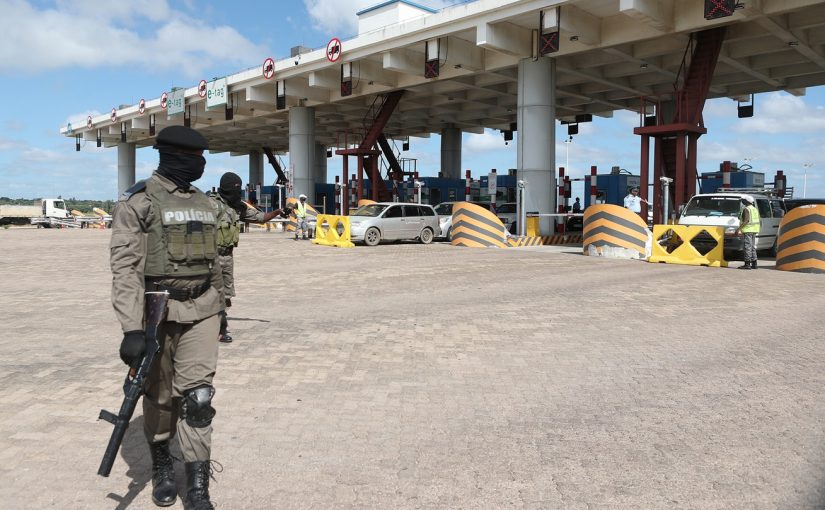Mozambique: State collects 22.5% less in taxes from casinos in H1
Mozambique: Government ponders introducing toll subsidies for public transport vehicles

FILE - For illustration purposes only. [File photo: Lusa]
The Mozambican government announced on Tuesday that studies are underway in coordination with road concessionaires to subsidise toll payments for public passenger transport, with a view to reducing costs, following vandalism of toll infrastructures.
“The government continues to work with [toll-roads] concessionaires to find alternatives to the costs of paying tolls to public passenger transport operators, in order to improve the cost of transport for citizens,” said Council of Ministers spokesperson Inocêncio Impissa after a meeting of that body in Maputo.
The issue at hand is the successive blockades of tolls, especially in Maputo, with protesters demanding an end to the payment of tolls, in response to the “30 measures for 100 days” document published by former presidential candidate Venâncio Mondlane, which includes the demand for tolling to cease nationwide.
The Mozambican government said yesterday that was consulting communities living near the tolls, who are considered the main cause of disturbances over payment, with the aim of seeking consensus to allow the tolls to resume normal operations.
“What is happening now is a process of assessing the damage and understanding the stakeholders, who are behind the process of destroying the tolls. In many places, many of the people who are destroying them are local communities, and many of them do not drive cars, but pay indirectly through public transport. But we also have transport companies that are among the main actors in the process,” Impissa explained.
The Mozambique Road Network (Revimo), responsible for the construction, maintenance and operation of several national roads, announced on January 25 that it would resume collecting toll fees in the country, which had been suspended due to post-election protests.
The announcement led hundreds of protesters to occupy and block the access roads between the toll booth and the Katembe bridge on 27 January, with traffic to and from Maputo blocked by motorists protesting the payment.
The South African company Trans African Concessions (TRAC), the concessionaire of the N4 highway, which connects Maputo to the Ressano Garcia- South Africa border crossing, also resumed collection of tolls on 23 January, also causing popular outrage.
The resumption led to protesters blocking the access roads to the N4 from Maputo on 29 January, with protests that led to the vandalisation of part of the TRAC facilities near the Maputo toll booth, including the destruction of two vehicles inside.
Almost 100 kilometres long in Mozambique, the N4 road – which connects Tshwane, Gauteng (South Africa) and the port of Maputo (Mozambique) – was built by TRAC under a 30-year concession, involving the governments of both countries, with the concessionaire assuming the construction and maintenance costs, after which the road, which is 570 kilometres long in total, can revert to the respective states.
“The concession contract ends in February, 2028,” an official TRAC source told Lusa on 27 January.
Mozambique has been experiencing a climate of social unrest since October of last year, with demonstrations and strikes called, at first, by former presidential candidate Venâncio Mondlane, who rejects the election results that gave victory to the Mozambique Liberation Front (Frelimo) candidate, Daniel Chapo.
Smaller-scale protests are still taking place in different parts of the country with people, in addition to contesting the October 9 election results, protesting the rising cost of living and other social problems.
Since October, at least 327 people have died, including around two dozen minors, and around 750 have been shot during the protests, according to the electoral platform Decide, a non-governmental organization that monitors electoral processes in Mozambique.













Leave a Reply
Be the First to Comment!
You must be logged in to post a comment.
You must be logged in to post a comment.